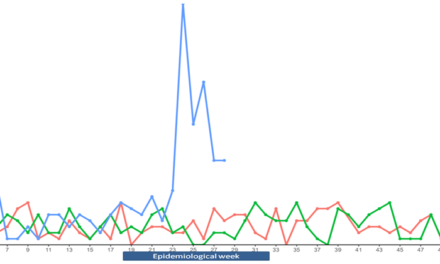February 13, 2024 – Researchers from the University of British Columbia in Canada have shed light on post-infectious coughs, stating that while common and often transient, coughs lasting longer than eight weeks warrant further assessment.
Dr. Kevin Liang, a family physician and clinical instructor in the Department of Family Practice at the University, emphasized the importance of reassuring patients that post-infectious coughs typically resolve on their own within a timeframe of eight weeks. “Reassuring patients that post-infectious cough is time-limited and self-resolving is important and can reduce unnecessary and costly prescriptions, such as asthma puffers or antibiotics,” stated Dr. Liang.
According to an article published in the Canadian Medical Association Journal, post-infectious coughs affect approximately 11% to 25% of adults following a respiratory infection and may persist for up to eight weeks. Diagnosis involves considering a prior respiratory infection and ruling out other conditions that mimic post-infectious coughs, such as asthma and chronic obstructive pulmonary disease. However, clinicians should remain vigilant for “red flags” indicating potential complications, including swallowing difficulty, excessive shortness of breath, and coughing up blood, which may necessitate further investigation.
The researchers emphasized that coughs lasting longer than eight weeks require additional assessment, particularly in cases involving a history of recurrent pneumonia or extensive smoking. They cautioned against relying on medications to alleviate post-infectious coughs, citing limited evidence of their effectiveness and the potential for adverse side effects and costs associated with their use.
Instead, the researchers advocated for patient reassurance and education, advising clinicians to recommend follow-up appointments if cough symptoms persist beyond the eight-week mark or if new symptoms arise.
This research offers valuable insights into the management of post-infectious coughs, highlighting the importance of patient education and judicious use of medications in addressing this common condition.











